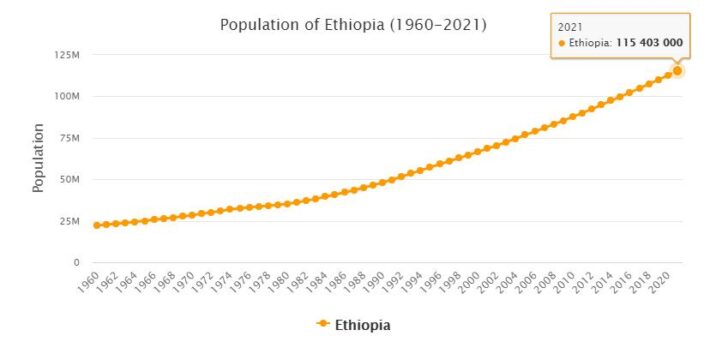Yearbook 2012
Ethiopia. The government’s difficulties in controlling security in the country became clear during the year. In January, five foreign tourists were killed and some were kidnapped near the border with Eritrea in the Afar region in the northeast. In March, 19 people were killed when armed men attacked a bus in western Ethiopia. The government also had major problems with violence and unrest in the Ogaden province in the west, on the border with Somalia. In addition, Ethiopia again had troops in Somalia fighting militant Islamists.
The Ethiopian government claimed that the perpetrators of Afar were terrorist groups trained and armed by Eritrea and then crossed the border, which was rejected by Eritrea. In March, Ethiopian military crossed the border into Eritrea and attacked military bases, claiming to have trained Ethiopian rebel groups. Several deaths were required. It was the first time since the 1998-2000 border war that Ethiopia attacked Eritrea.
- AbbreviationFinder.org: Provides most commonly used acronyms and abbreviations for Ethiopia. Also includes location map, major cities, and country overview.
Reporters Without Borders raised alarms during the year about Ethiopia’s tough control of information exchange on the Internet, where the state telecom company had a monopoly and blocked other communications. For example, 15 years in prison threatened anyone using Skype, VoIP or other similar telephone service online, according to the government, however, only for “fraudulent” activities. The opposition and media were eavesdropped and some websites were blocked.
A number of Ethiopian journalists were sentenced to lengthy prison terms or stood accused of terrorism or support to terrorist groups. At the beginning of the year, three journalists were sentenced on such grounds to between 14 years and life.
In May, incarcerated journalist Eskinder Nega was awarded the American PEN Club’s Freedom to Write Freedom to Write Award for his critical articles on Ethiopia’s oppression of human rights. Eskinder Nega, who has been imprisoned at least seven times, was charged with anti-terrorism laws for criticizing the government’s arrest of journalists and others under the anti-terrorism laws.
In July, Eskinder Nega, opposition activist Andualem Arage, was convicted and 22 co-accused of using the freedom of expression to try to destabilize the country and to link up with the Ethiopia-stamped opposition group Ginbot 7, based in the United States. Eskinder Nega was sentenced to 18 years in prison. According to the lawyer, the accused were innocent, and according to Amnesty International, the trial was substandard. Amnesty said the government was trying to silence all critical voices.
Shortly before that verdict, a UN security chief was sentenced to seven years in prison for his contacts with the banned and terror-stamped Ogaden National Liberation Movement (ONLF), which is fighting for increased self-government in Ogaden. The convicted had negotiated the release of their subordinates who were kidnapped by the ONLF.
The two Swedish journalists Martin Schibbye and Johan Persson were released in September after being pardoned by the Ethiopian government. They had been sentenced before New Year to eleven years in prison, charged with conspiracy with ONLF, after trying without permission to enter Ogaden to report on the repression.
Prime Minister Meles Zenawi passed away in August after a long illness. He had ruled with iron hand since 1991, both over his party EPRDF (Ethiopian people’s revolutionary democratic front) and over the country. Although Zenawi was a hard-core Marxist-Leninist, he was an important ally of the United States, which utilized Ethiopia’s military effort in its fight against al-Shabaab in Somalia, an ally of al-Qaeda in the Horn of Africa.
Deputy Prime Minister Hailemariam Desalegn was appointed in September as Zenawi’s successor as prime minister. While Zenawi was a member of the Northern Dominant Tiger elite in the EPRDF ruling party, Desalegn came from the south. He was also a member of a small Protestant church, unlike most of the power elite who had ties to the Orthodox Church.
The leader of the Orthodox Church in Ethiopia, Abune Paulos, passed away during the year. He was the head of Ethiopia’s approximately 40 million Orthodox Christians, about half the population of the country.
Population 2012
According to countryaah, the population of Ethiopia in 2012 was 100,835,347, ranking number 13 in the world. The population growth rate was 2.840% yearly, and the population density was 100.8355 people per km2.
